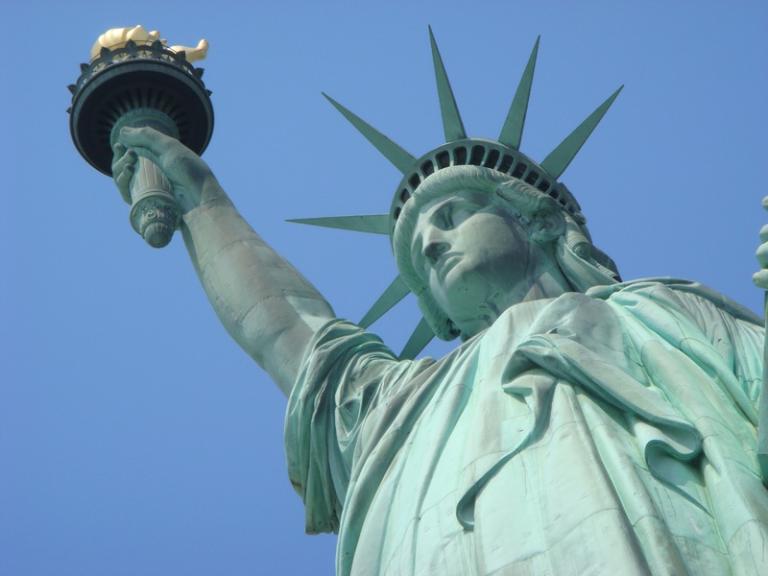Synonyms are two words that have the same meaning. They are often used interchangeably. And yet they often have different shades of meaning. Take the two words “freedom” and “liberty.”
Pepperdine economist Gary M. Galles explores the distinction in his piece for the American Institute for Economic Research entitled DNC Celebrates ‘Freedom,’ But Not Liberty
He begins by discussing the Democratic National Convention, a major theme of which was “freedom.” This struck his attention, since that concept has mainly been an emphasis of Republicans (as in the House “Freedom Caucus”), back when conservatives were conservative. What he didn’t hear from the Democrats, though, was any mention of “liberty.” What’s the difference?
“Liberty”. . . is liberty from man-imposed coercion — while “freedom” is more agnostic about what it is freedom from. For instance, I can take your money and call it an increase in my freedom. Perhaps Ludwig von Mises stated what has become my view most clearly when he wrote in Liberty and Property, “Government is essentially the negation of liberty. Liberty is always freedom from the government. It is the restriction of the government’s interference.” And if there is anything the Democrats were not offering, it was less government interference and imposition.
Galles then examines Franklin Roosevelt’s “Four Freedoms”:
This episode reminds me of FDR’s “Four Freedoms” speech, in which his first two listed freedoms — freedom of expression and freedom of worship — were consistent with liberty because those freedoms for you do not take away from the same freedom for me. The only government role created is preventing others’ intrusions on our equal rights. They are aspects of liberty for all, defending citizens’ rights against man-imposed coercion
However, FDR’s third and fourth freedoms were inconsistent with liberty, because they provided what he called freedoms for some, but took away from others’ freedoms.
His “freedom from want” (“compassion,” in the language used in Chicago) cannot be similarly universal. It commits government to provide some people more goods and services than they would have gotten through voluntary interactions (including voluntary charity) with others. But expanding a recipient’s “freedom” in that sense necessarily constricts others’ equal freedom to attain their desired goods and services with their resources. That is, it must violate liberty.
And his “freedom from fear” was also insufficiently generalized. It proposed protection against international aggression. But it said nothing about constraining a nation’s freedom to aggress against its own citizens.
I’m not sure that Galles has linguistic evidence for this distinction, but it is helpful to have two different words for the absence of coercion generally applied (“liberty”) and the assertion of an individual will, sometimes at the expense of others (“freedom”).
At the Democratic convention, “freedom” seemed to refer mainly to sex and the consequences of sex. Abortion freedom does indeed infringe upon the freedom of others; namely, the child whose life is snuffed out. Sexual freedom and the freedom to marry for LGBTQ? Well, for better or worse, we have that in this country. We can call that liberty. But now the push is to allow the LGBTQ cause to infringe upon other people’s freedom–religious objectors; women in women’s sports; children’s freedom to have children of their own when they grow up; etc.–turning what started as a “liberty” into a “freedom” that tramples upon the freedom and liberty of others.
Such a distinction might clear up the seeming paradox in Lutheran theology: Because of the Bondage of the Will, our freedom always manifests itself in sin, which harms our neighbors, including limiting their freedom. But because of the gospel, we have Christian Liberty, which allows us to love our neighbors without the coercion of the Law.*
Again, I’m not convinced about the linguistic validity of what Galles says. I think the two terms are, in fact, mostly interchangeable as we actually use them. And yet he is right to draw our attention to a freedom (or liberty) we demand for ourselves that takes away the freedom (or liberty) of others. And there is also a liberty (or freedom) that all are entitled to, that we can enjoy without taking it away from anyone else.
UPDATE: Actually, Galles does have warrant for the definition of liberty as the absence of constraints and freedom as the ability to do what one wills, even at the expense of other people’s freedom. From the Wikipedia entry for Liberty:
Sometimes liberty is differentiated from freedom by using the word “freedom” primarily, if not exclusively, to mean the ability to do as one wills and what one has the power to do; and using the word “liberty” to mean the absence of arbitrary restraints, taking into account the rights of all involved. In this sense, the exercise of liberty is subject to capability and limited by the rights of others. Thus liberty entails the responsible use of freedom under the rule of law without depriving anyone else of their freedom.
*I am using Luther’s titles here. German has only one word, Freiheit, meaning freedom or liberty. Luther’s book “Von der Freiheit eines Christenmenschen” is sometimes translated “Concerning Christian Liberty,” as here, but is more often translated “The Freedom of the Christian.”
Photo by form PxHere. CC0, Public Domain.












